M.J. Mandoki's Blog, page 8
June 6, 2016
The Hungarian Curse: The Pagan Curse of Turan
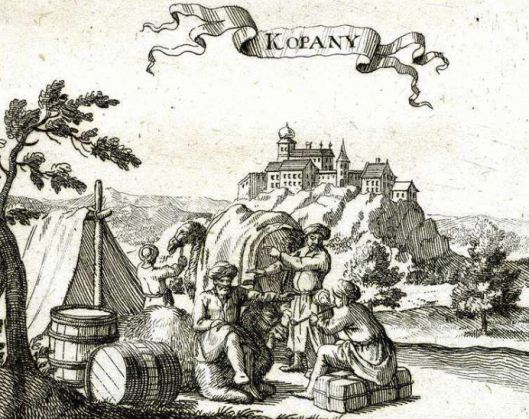
Hungarians are very familiar with the Curse of Turan. In popular language, it refers to the suffering of the Hungarian people either through inner strife and pessimism or through natural catastrophe, lack of independence from other nations and wars in general. The pure mention of it usually creates bitterness and sadness in Hungarian people. Where did this belief in the curse come from?
The most accepted explanation for the origin of the curse is that a pagan shaman put a spell on the nation. Historically, Hungary was a pagan nation until the year 1000 A.D., ruled by the House of Arpad. With the death of Geza, the ruler of Hungary, according to the Levioratus tradition, the nation’s leadership belonged to the oldest and most able male member of the ruler’s larger family. The most able leader was Koppany. However, he was not the son of Geza and Geza’s son, Vajk, revolted against the ancient tradition to claim right to his father’s throne. The dispute led to a battle of the men against each other. The battle was not just significant for the leadership in the family, but also for the spiritual fate of all Hungarians. Koppany was deeply entrenched in his pagan faith and was ready to defend it against the Christian invasion. On the other hand, Vajk was ready to make a change and adopt the Christian faith to save Hungary from a devastating destruction of the Christian army. The battle was fought and the pagan leader died. Vajk became a Christian a took the name Istvan (Stephen) and became King Stephen of Hungary, the first Christian king.
The pagans lost and they were not happy. They did not want to lose their faith for political reasons. As a result, according to the legend, a powerful shaman officially put a curse, a malicious spell, on the new Christian nation for 1000 years. His spell simply pronounced: “May you not live in agreement for a 1000 years!” The Hungarian nation was to suffer because of the official adaption of Christianity. There is a disagreement whether the shaman was targeting the Christian leadership or the Hungarian people or both.
One thing is for certain: The Hungarian people believe that they have suffered a great deal of misfortune in the past 1000 years, beginning with the leadership of King Stephen. Hence, they have a tendency to believe in the curse. Of course, others cite alternate theories for the birth of the curse. But, whatever the origin may be, the belief in the curse is very strong in Hungarians.
The wonderful news is that 1000 years is up! Ironically, there has been a resurgence of the old pagan faith for the past fifteen years. The new theory is that maybe the shaman’s spirit that lingers around have come to understand that Hungarians have never really lost their old faith, tradition or culture! Or, maybe the curse has truly lost its power! Of course, these answers do require a belief in the power of the initial curse and curses in general.


May 29, 2016
My books are in store!
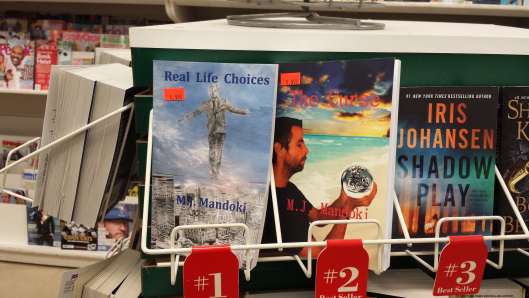
I am starting to be addicted to the feeling of success, which is a great feeling. My books are in a store in London, Ontario! No, it’s not a bookstore. But, this will not dampen my mood. As an Indie writer, I find it very difficult to find the time to properly market, write and hold onto a fulltime job at the same time. As usual, marketing suffers as a result. However, all small victories should be celebrated when my limited time allows me to successfully market my books. Actually, this opportunity came easily. I asked a local store owner in Cherryhill Mall, who has a fairly large selection of fiction books in his store, if he would carry my books. He said “yes” right away. And,–drum rolls, please!–the books are selling very well! As I said, I am getting used to the feeling of success. It’s a wonderful feeling!


May 23, 2016
My 100th Blog!


This is my 100th blog! My journey started 18 months ago when I set up my website. I searched for a website where I could record my journey as a writer. WordPress.com was the perfect site for it. I could create a page for my biography and a page for my books and also write weekly blogs. With my blogs, I wanted to share my thoughts on reading and writing, encourage other writers, explain my philosophy and offer any news I had on my books and short story competitions.
I think, I succeeded with my blogs. I have over a hundred new visitors and over two hundred views a week. People checked out my blogs from as far as Chile and Belarus. My website is linked to my Linkedin, Facebook, Goodreads and Twitter accounts where I receive even more views and comments on my articles. My popular articles are usually about book writing, publishing and education. However, I have received great attention for the self-help techniques I encourage authors to use to stay focused and keep going. All in all, my website has been a great success. Not bad for a person who, until two years ago, did not have any social media accounts, at all!
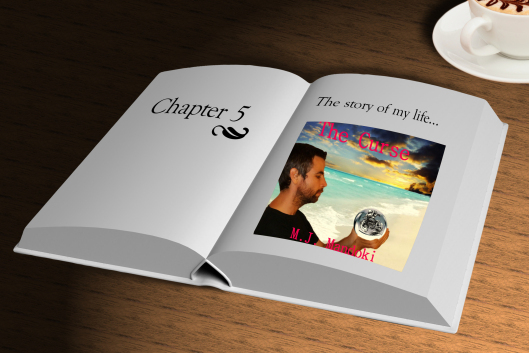
Mostly, blog writing ended up helping me. I find it wonderful that, not only can I help other people, but I also have a chance to rethink my ideas and reflect on my efforts. It is incredibly helpful and it gives me great pleasure to do it!
It also gives me the chance to see my accomplishments and the energy I put into my work. In summary, in the past eighteen months, I did the following. I set up the social media accounts, I mentioned above. Of course, I wrote 100 blogs. I also wrote and published my two books, The Curse (2014) and Real Life Choices (2015). I am halfway through my third book, a novel called The Art of Revenge (anticipated finishing date September 2016). I have participated in eight short story competitions. One of my stories,” Just Business”, made it into a collection of short stories, entitled Wherever We Roam (2015). I have read over a dozen books and, at least, another hundred articles on a variety of topics. I applied to Western University to finish my unfinished PhD and got accepted. I am about to start school in September. I am also a married adult with financial and social responsibilities. This means that I did all of this while working a full time job and helping my husband recover from an illness and my mother with language translation of her legal paper works, due to my mother’s limited understanding of English. In addition, I am a huge believer in setting time aside to do spiritual practices every day. I think, I can say with certainty that I can consider the past eighteen months of my life very successful.
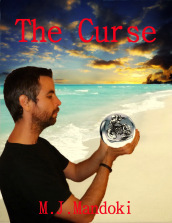
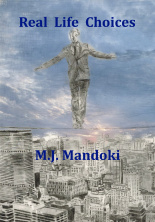
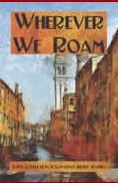
I would like to sincerely thank all people who regularly follow me and also all those who have ever visited my site to read an article and to inquire about me and my books. Thank you so much! You are wonderful! I appreciate every click, every like and certainly every comment! Please, continue with them!

I would also like to encourage every one of you to keep writing your blogs, articles and books. We, writers, have to save the next generation from the destructive forces of cheap realities shows, text message style abbreviations and meaningless media usage. We need to encourage engagement with powerful stories in books and on television, healthy and respectful political debates and meaningful discussions. We can make it happen!
Thank you for your continuous support.


May 16, 2016
The Reason to Write Book Reviews

The title may seem strange coming from a writer. After all, writers want readers to write book reviews on their books. So, why would an author want to write and encourage other authors to write book reviews?
The reason is rather simple. Good books need to be separated from the not-so-good books. Since there are more than eight million books published each year, a lot of less than well-written and less than desirable books are circulating out there. With the constant and free presence of social media, any book can be advertised, even the really bad ones. Hence, the only way to sift through the large pile of more than eight million books is to write honest reviews on books.
Authors have experience in creating books. Educated and experienced authors are a great asset to the public. Knowing how to create, shape, mould and finalize a book using a lot of sweat and tears, authors are in a great position to point out those books to the public that are truly magnificent. For example, I recently wrote a book review on True Magick by Amber K. I found this book very informative and extremely well-written. I wanted let the world know about this wonderful treasure. Of course, a non-fiction book on real life magick may not be of everyone’s taste. However, the point is not to push a product on every reader. Rather, the point is to raise awareness about the quality of the book.
I know that the objection may be that writers have very little time as it is. Most of us have a full-time job or school to attend to in addition to writing books. However, it is worth putting just a little effort into book reviews. Basically, if every educated and experienced writer takes the time to write two book reviews for every book he or she is producing, the large pile of eighth million books a year can be sorted out more easily in terms of quality. All an author has to do is to offer an honest book review on the topic that he or she knows a lot about. That should not be hard!

Therefore, I am starting a trend of writing two book reviews for every book I contribute to the book market. I urge all educated and experienced writers to do the same. Thank you.


May 5, 2016
Book Review: True Magick by Amber K
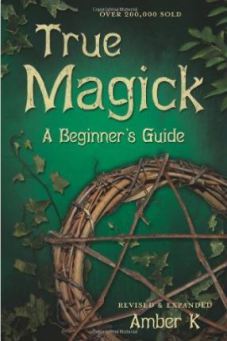
I rarely write book reviews. However, once in a while, I come across a book that deserves my attention and gratitude. Amber K’s True Magick is one such wonderful book.
True Magick is seriously about the practice of real life magic. It is a book that can convince even the non-believers of magic to reconsider their position. How does Amber K achieve this seemingly impossible task? It is the structure, content and extraordinary level of knowledge, delivered in a very well-written prose, that allow her to put the magic(k) into the magick.
Very few books, even amongst academic texts, nowadays possess a kind of structure that allows the reader to be clearly and gradually led into a topic. Amber K seems to be a master of it. First, she clearly defines magick, explaining what is magick, what is not magick and what purpose magick serves. She offers a historical lesson and properly connects magick with the disciplines of science and religion. Soon, both the possibilities and ethical boundaries become very clear to the reader. Then, Amber K describes the types of magick a person can practice and takes the reader step by step through the safe, practical and ethical application of it. By the time the reader finishes the book, all basic questions are answered and the person can confidently become lost in the world of beginner’s magick. Hence, the book is so well-structured that there are no questions or puzzles left either in any area Amber K deals with, as she moves from one section to the next, or at the conclusion of the book.
The structure also supports the clearly presented content. The challenge for any teaching book is usually to find the appropriate level of the readers’ understanding and the appropriate amount of material included in the book. Amber K definitely wins that challenge. The language and the material are at a level that supports the understanding of the general public but still allows for complex material to be presented even about quantum physics, humanistic psychology and metaphysics. It is a remarkable achievement that, even in the academic world of teaching books, very few professors can ever master. The proper balance between the overly technical presentation at the risk of losing the audience and the oversimplification of a topic for the sake of understanding is usually a losing battle. It is remarkable that Amber K manages–shall we say magically?–get it just right.
In this book, she also does something that she neglects to do in her other books. She actually shows how much knowledge she has, not just about magick, but also about other topics. It is stunning to see her high level of knowledge in the area of epistemology, metaphysics, ethics, mythologies, eastern philosophies, quantum physics, chemistry, alchemy, humanistic psychology, astronomy, astrology, religion and, of course, paganism in general. The author is so well-educated and learned that this level of knowledge is usually seen in older professors whose job is to spend their lives reading books! It would be wonderful if she could let her readers know about her hidden knowledge in areas other than in paganism in all her books!
Critics of True Magick often point out that even though she is trying to write a book about magick in general, she often falls into the trap of offering the Wiccan interpretation of the subject material. It may be true that she falls back on her tradition when she is giving advice on the practical application of magick. However, this criticism is too harsh. Magick is not without tradition. Simply, magick does not exist in a vacuum. It is not possible to present both a theoretical and a practical application of magick without situating it into one or another tradition. Trying to present the subject of magick without any tradition is like trying to talk about angels without any religion or trying to offer a particular quantum explanation of reality without any school of physics behind it. It just cannot be done! In fact, thinking about the impossibility of presenting without a tradition, Amber K actually does a great job keeping the topic general with her background in paganism as a Wiccan priestess.
There is just one shortcoming of this book. Amber K presents five types of magick: nature magick, intrinsic magick, ceremonial magick, hermetic magick and kitchen witch magick. She works out the first three types of magick in details, covering them in individual chapters. Unfortunately, for an unknown reason, she refuses to work out the details of hermetic magick and kitchen witch magick. Thus, the philosophically inspired people, like me, and potential everyday kitchen magicians never learn about the source that makes them happy to get up in the morning!
Despite this small shortcoming, True Magick is truly magic(k)al. It is the most remarkable book anyone can read about real life magick. It is also one of the most well-designed, well-created and well-written books a person can have on the book shelf. University professors can truly be envious of this masterpiece!
To see all her books and to sign up for her courses, please, go to: https://www.ardantane.org/
With gratitude to Amber K,


May 1, 2016
May Day: No, It’s Not An Airplane Disaster!
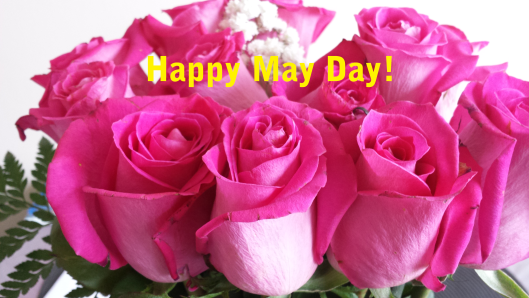
It is interesting that English speakers think of May Day either as an SOS Morse code distress signal or as a television show about airplane disasters. The origin of May Day has actually nothing to do with human distress or disaster. May Day is a pre-Christian spring celebration in Europe that falls on May 1st.
What do people do on May Day? The day is famously associated with the May Pole and May Tree. In Europe, this tradition still lives on in some villages. Designated trees are decorated with colourful ribbons. A May Pole is erected where multiples of usually blue, white and red ribbons are wrapped around the pole by youngsters during live music with on-lookers cheering them on. In cities, the tradition is centered around flower festivals. Tapestries of flowers cover city centre squares and florists are in competition to win a price for their flowers and their designs. The traditional foods in central Europe for the festivities are sausages on buns, pretzels and beer. Kids usually receive colourful cotton candies and fruit juices. Of course, girls love to decorate their hair with chaplets. It is a cheerful day when even the most pessimistic people cannot help but smile.

Of course, as with all ancient European celebrations, an establishment always loves to still the day to rename and replace the original idea. Communism has been the biggest culprit in the 20th century. Communists declared the day “workers’ day”. Now, it is also known as the International Workers’ Day. Unionized workers usually take the opportunity to plan demonstrations and demand more rights on May 1st.
The tradition is just vaguely associated with workers, though. The original idea behind May Day was to celebrate the fertility of the land. By May 1st, the farmers had a good idea looking at the number of flowers on trees, forests and their own lands, how well Mother Earth will gift them with their yearly crops. Lots of flowers mean lots of food. Lots of food mean healthy and bountiful live stocks. Hence, the bounty of Mother Nature was a cause for happiness. If the outlook was not that great, May Day was still an opportunity to say thanks for having enough and encourage the great forces of nature to offer a little more. It does not hurt to celebrate the one offering the means to human survival!
This is a happy day. So, smile! And, do not wait for an airplane disaster in your neighbourhood!


April 25, 2016
Books for free? Absolutely not!
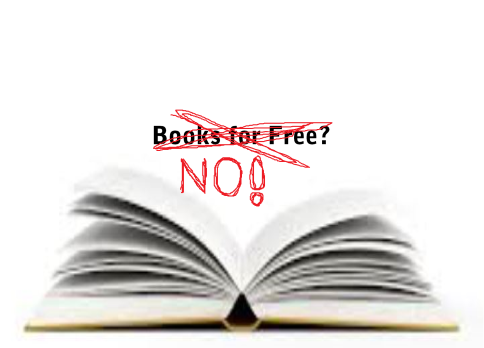
I am disheartened by the number of people who give away their books for free. The idea behind giving away the book is that, if people love the book, they will be willing to buy the next book the author writes. I believe that this is a wrongheaded approach.
I realize that on the short term this practice may offer a desirable result of more people reading the book. However, I believe, this practice damages the whole industry. Other than in the world of art, this behaviour is unheard of. Has anyone seen another competitive business where people make a habit of giving away a product or a service for free? I have not seen any dentist repair teeth for free just because there are a lot of them around. I have never seen clothing stores hand out summer dresses for free because the business is competitive. I have never received coffees for free because there is a coffee shop around every corner in the city. So, why is it acceptable to hand out brand-new artwork for free?
In addition, the market strategy of giving brand new books away for free does not really work. Why? Imagine a clothing store having a rack where the clothes are always free. Where do you think people go first when they enter the clothing store? You guessed it! They will flock to the fee rack. Surely, they love a designer dress that is freely given away. But, imagine that the next time they enter the store, the designer wants money for a similar good-looking dress! What happens then? Do you think they will get their wallets out? Remember, the free rack is still in the store! Of course, they will not want to pay. They just pick another designer whose dress happens to be free that day. The problem is timing. If every designer in the store decided to stop putting free clothes on the rack, the customers would have to get their wallets out. Remembering the dress’ designer that came to them for free the previous time, they would look for the same designer and pay for the dress. But, this strategy works only if there are no other designers giving away free dresses at the time!
In the book selling world, there are always free books available. In the Indie world, people are putting their brand new books up for free by the hundreds every day. This means that there is no shortage of free books. And, why pay for it when you can get one for free? Hence, I believe that the outrageous practice of giving away books for free damages the industry and devalues the authors’ hard work.
I honestly think that it is better to sell fewer copies of a book than devalue a work. Authors work hard. Writing a book takes anywhere between months and years of hard work depending on the subject material. It is not an easy thing to do and people should not expect this hard work to come for free. Dental works do not come for free. Designer clothes do not come for free. Coffees do not come for free. Why should brand new books come for free?


April 17, 2016
The Curse: Bruce Lee and Brandon Lee
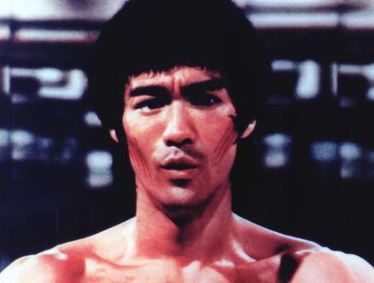
Bruce Lee
Since I wrote about the belief in the power of being cursed in my book, The Curse, I became very interested in people who believe in its power. Therefore, I decided to occasionally write a short article about individuals or even groups of people who believe or believed that they are or were under the power of a curse.
In this first piece, I will focus on Bruce Lee and Brandon Lee, father and son, who have apparently died of a family curse. They were both legendary martial artists, appearing in a number of celebrated movies. Both father and son inspired a large number of people to take up martial arts in the Western world.
Bruce Lee was a direct descendent of a powerful Chinese dynasty with a special link to the Far Eastern Illuminati, a secret society that worships Chinese demons. Since Bruce Lee was born in the year and hour of the Dragon, he was thought to be very special. Apparently, the secret society approached him several times during his life, asking him to join, but he refused. Because of his refusal, a curse was thought to have put upon him with the help of the demons who caused many nightmares during his life before he passed away from Cerebral Edema.
According to the legend, the curse passed to his first-born son, Brandon Lee. The demons hounded him until he died of an accident on a movie set. A gun was accidentally loaded with live ammunitions instead of blanks and killed Brandon Lee instantly. With his death, the curse is thought to have died because he did not have a son to pass the curse to.
Can a person put a curse on someone? Is it possible? I deal with this subject in my book, The Curse.


April 11, 2016
Bill C-24: The Eco-Terrorists
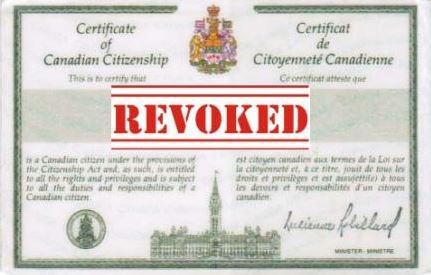
After the RCMP officer had left, silence fell on the town’s only holding cell. David and Michael sat on the bench side by side, their backs to the wall and their limbs stretched out. Adala sat opposite to them on another bench with her legs pulled up to her chest. They were all staring at the floor.
Michael broke the silence. “Eco-terrorism?! That’s what they are charging us with?” he asked with some sarcasm in his voice. He sat up straight and looked around for a response from the others. He did not get any reaction. Instead, he heard Adala’s quiet voice.
“My God! My God! This can’t be true!” she mumbled.
“Oh come on! Lighten up! It’s kind of funny!” Michael tried to console her.
“It’s not funny,” David jumped into the conversation, also sitting up straight. “We blew up a couple of oil barrels during an environmental protest. It’s serious, Michael!”
“It was an accident,” he responded, putting emphasis on the word “accident”.
“Why did you throw the flare at the barrel?” David interrogated him.
Michael became defensive. “The cop held a gun at me. He told me to put my hands up. I saw the gun and panicked. I didn’t want to get shot! So, I threw it away…uh… and it landed in the wrong place,” he explained. He paused to look at both of them. “Well, nobody got hurt,” he added to make a point.
“My God! I’m doomed!” Adala cried out.
“Would you just relax?” Michael barked at her, losing his patience.
She put her feet on the floor and looked deep into his eyes. “Relax? Seriously? You want me to relax? We are Canadian Eco-terrorists! You know what this means? I will be thrown out of this country soon!” she yelled. Michael was so surprised by the sudden forceful voice that he could not respond.
“What do you mean?” David asked calmly instead.
“My God! Am I the only graduate student in this room with knowledge of the Canadian laws? Haven’t you heard of Bill C-24? According to the latest government rule, if you are a terrorist, your Canadian citizenship can be revoked.” Adala was on the verge of a break-down.
“They can’t do that!” Michael laughed. He was very dismissive of her statement. “Where would we go? Where would I go? I am a fifth generation Canadian.”
“Lucky you, Michael,” Adala replied, now sobbing. “Lucky you. You have single citizenship. Bill C-24 states that you cannot lose your citizenship, if you are Canadian only. You were born under the right stars, I guess! I am not that fortunate. I am a dual citizen. The rule allows them to take my Canadian citizenship.” She paused. Michael stared at the floor. He wasn’t sure what to say to her. She continued. “I don’t want to go back to Saudi Arabia! Do you know that women have no right to drive a car there? Hell, they even have to get permission from a male relative to work! My grandfather is the only member of my family who currently lives in that country. He is ultra conservative. If I have to live with him, he will surely not allow me to work. He probably won’t let me outside the house, at all. I’m doomed!”
“That’s terrible!” David commented. He looked very concerned about Adala’s potential fate.
“I guess, I am a second-class citizen—in both countries now,” she added on a quiet tone.
David took a few deep breaths. “I feel very lucky now. My mother came over from Italy before I was born. I don’t have an Italian citizenship,” he said. He was very relieved.
“Just out of curiosity, are you eligible to get one after your mother?” Adala inquired. Her tone made David worried for a second.
“Yes, I am. But, I don’t have one,” he smiled triumphantly at the end of his answer.
“You can stop smiling now, David. If you are even eligible to become an Italian citizen, they can take your Canadian citizenship from you,” she clarified. She bit into her lips at the end of her sentence nervously, knowing that David would not like the news.
“What? That’s not right! I belong here!” David delivered the expected answer. He was outraged. “Besides, I barely speak Italian and I certainly can’t read the language! I have never been to Italy! For God’s sake, I am an Asian gourmet chef with a Japanese wife who is currently six-months pregnant! I can’t move to Italy! What are my wife and baby supposed to do without me? Who’s going to pay the bills? I surely can’t take them with me to Italy! How am I going to get a job there? As I said, I barely speak the language!” David was practically yelling out his statements. He was in a panic thinking about the ramification of the law that seemed outrageous to him. He continued gesturing with his hands even after he stopped talking. He was visibly distraught.
Michael kept shaking his head all this time. “If I knew how screwed up the Canadian system was, I would have stayed in Germany,” he said and let out a sigh.
“I thought, you said that you were a fifth generation Canadian,” Adala complained. She was confused now.
“Yes, I am. But, my father was an army man. He was stationed at an army base in Hamburg. I lived in Hamburg from the ages of two to sixteen. Recently, I have worked there for a year, as well.” He felt more and more uncomfortable speaking to the two unfortunate souls in the holding cell.
“This is just great,” David blurted out, rubbing his forehead.
Adala pointed her finger at Michael as she began to speak to address David’s point. “Yeah! This is just great! This is Canadian justice for you! Michael is practically German without a German citizenship and he gets to stay in Canada! At the same time, I get to be deported to become a female slave in my grandfather’s house and you get to abandon your wife and kid to live in a country where you have never been to before. Awesome!” Although she stopped pointing at Michael accusatively, Adala still refused to look at him. She was very angry.
Michael was on the defensive again. “Well, don’t blame me! I didn’t make the law! I am just lucky enough to benefit from it!”
David was rolling his eyes. “That’s nonsense! You’re the one who threw the flare. We didn’t cause the explosion. We were just lumped in with you because we were standing together.” David stood up and started pacing while playing with the curly locks of his hair.
“Try unfair,” Adala corrected him. She put her right hand on her chest to take an oath. “I will do anything to make a deal with the authorities; so, they can drop the eco-terrorism charge.” She raised her eyes toward the ceiling. “God, if you can get me out of this situation, I promise never to participate in an environmental rally. In fact, I promise never to participate in any political gathering. Please, God, help me! I don’t want to be a female slave in my grandfather ‘s house!” Adala was quietly sobbing as she addressed the higher power. At the end, she buried her beautiful face in her hands again for a few moments. Then, she kept running her fingers through her thick black hair, some of which always ended up in front of her young face. She pulled her legs up once more. She put her arms around her legs and began to rock back and forth.
David sat back on the bench. “Amen to what you just said about staying out of politics,” he said quietly. He leaned forward. He placed his forearms on his knees to support his weight. His eyes were locked on the ceramic tiles on the floor. He took up a statue-like contemplative position. He came alive occasionally just when he bit into his lower lip.
Michael felt terribly guilty because he knew that they were right. He threw the flare in panic; nevertheless, he could get away with a lot less punishment than the others. He would not lose his citizenship. He kept switching his focus from David to Adala in hope. He was uncertain what he was hoping for. Forgiveness? Understanding? Sympathy? Finally, after a long stare, he understood that they were not the ones who needed to offer him hope. Instead, he had to offer hope to them.
“I will carry the torch for the two of you in all future rallies,” he finally said.
“You should do that,” David agreed. The beautiful, bitter woman nodded, too.
Adala kept rocking her body. David continued to stare at the tiles. Michael’s eyes got glued to the cell door. They fell silent again and nobody spoke for the rest of the night.


April 4, 2016
The Name of the Informant
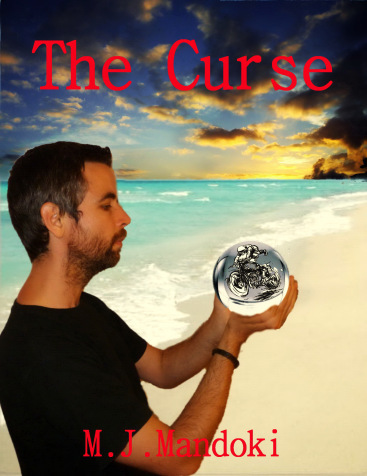
I love building hidden clues in my stories that would reveal details that I do not explicitly explain. In my first book, The Curse, I built in a clue that would reveal the identity of the informant. The identity is not a crucial information for the resolution of the story, but it is an important element in order to discover another layer to it. I left the clue well hidden to see how many of my readers would be able to discover the identity of the informant. I waited and waited and waited…
After hundreds of copies sold, I started to lose hope of anybody ever finding the clue and letting me know the name of the informant. Then, this past Friday, one of my readers let me know that she has indeed solved it. Since I happened to meet her in person, she had a chance to see me jump in joy! Finally, someone solved it! She let me know the exact place the clue is hidden in the story. She paid attention. This made me incredibly happy!
With her permission, I will state her name, here. So, the first person to name the informant is Brenda VanMarle! I am very proud of her. I have to say that Brenda is a focused, sharp woman. She sells antique furniture for a living and she has great eyes for details. Apparently, she is good at what she does! By the way, if anybody is looking for great antiques and collectibles in Southwestern Ontario, she can be reached at mstb@bell.net. (I am so impressed with her skills that I am advertising her business here for free!).
Brenda really made my day! At the moment, I am very proud of my skills, as a writer, and her skills, as a detail oriented reader! I wish more people would notice the clue and let me know who the informant is!






